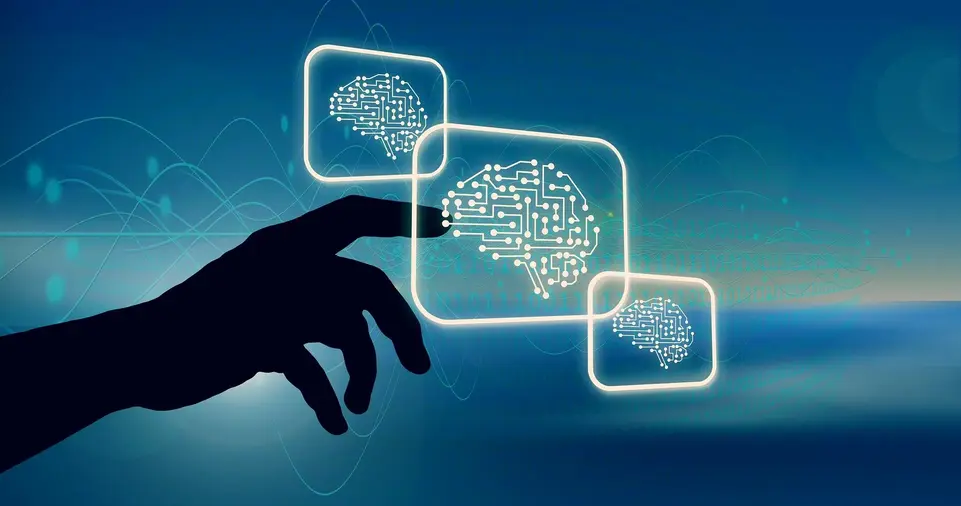Artificial Intelligence (AI) is at the forefront of technological advancement, reshaping industries, transforming economies, and redefining human-computer interaction.
As a powerful driver of innovation, AI is no longer confined to research laboratories or tech companies.
It has permeated various sectors, from healthcare and education to entertainment and cybersecurity.
With its rapid evolution, AI brings opportunities to solve some of humanity’s most complex challenges while also presenting ethical and technical hurdles that need to be addressed.
This article explores the major trends driving AI, the opportunities it creates across industries, and the critical challenges to consider as we move forward.
By understanding the dynamics of AI development and its future potential, we can better navigate this transformative era and ensure its benefits are harnessed for the greater good.
Key Trends in AI Development

Generative AI Expansion
Generative AI has emerged as one of the most transformative advancements in artificial intelligence.
This subset of AI focuses on creating new content, such as text, images, music, and even video, based on patterns learned from existing data.
Tools like ChatGPT, DALL·E, and MidJourney have demonstrated the immense potential of generative AI in automating creative tasks and enabling innovation across industries.
For instance, businesses can use generative AI to develop personalized marketing campaigns, prototype product designs, and produce high-quality content at scale.
The ability of generative AI to mimic human creativity has also sparked a revolution in education, entertainment, and research.
Educators are leveraging AI to generate tailored learning materials, while filmmakers use it to storyboard and visualize scenes.
Despite its benefits, generative AI raises ethical concerns, such as copyright issues and the potential misuse of deepfake technology.
Addressing these challenges will be critical to realizing its full potential responsibly.
Edge AI Deployment
Edge AI represents a paradigm shift in how data is processed and analyzed.
Unlike traditional AI, which relies on cloud-based servers for computation, edge AI performs data processing locally on devices like smartphones, IoT sensors, and autonomous vehicles.
This approach offers significant advantages, including reduced latency, enhanced privacy, and improved real-time decision-making capabilities.
The healthcare industry, for example, benefits from edge AI through wearable health devices that monitor vital signs and provide immediate feedback.
Similarly, autonomous vehicles rely on edge AI to process environmental data in real-time, enabling safer and more efficient navigation.
The proliferation of 5G networks is further accelerating the adoption of edge AI, paving the way for smart cities, industrial automation, and advanced robotics.
However, the complexity of deploying AI at the edge—combined with challenges related to energy efficiency and device interoperability—requires ongoing innovation.
AI in Healthcare
The integration of AI in healthcare is revolutionizing patient care, diagnostics, and treatment planning.
Machine learning algorithms analyze vast datasets to identify patterns that might escape human observation, enabling early detection of diseases such as cancer, diabetes, and cardiovascular conditions.
Predictive analytics powered by AI helps healthcare providers anticipate patient needs, optimize resource allocation, and reduce costs.
Beyond diagnostics, AI is enhancing surgical precision through robotic-assisted procedures and enabling the development of personalized medicine.
Virtual health assistants, powered by natural language processing, offer patients 24/7 access to medical advice, improving accessibility and convenience.
Despite these advancements, the widespread adoption of AI in healthcare faces hurdles such as data privacy concerns, regulatory challenges, and the need for robust validation of AI models to ensure accuracy and safety.
Ethical AI and Responsible Development
As AI becomes increasingly integrated into society, ensuring its ethical development and deployment has become a top priority.
Ethical AI involves designing systems that are transparent, fair, and accountable.
This includes addressing biases in algorithms, ensuring inclusivity, and preventing the misuse of AI technologies.
One significant challenge is algorithmic bias, where AI systems may produce discriminatory outcomes due to biased training data.
For example, biased hiring algorithms have raised concerns about fairness and equal opportunities in the workplace.
To counteract such issues, organizations are adopting practices like bias audits, diverse data sourcing, and inclusive design principles.
Regulatory frameworks and international guidelines are also being developed to promote responsible AI practices and safeguard against potential harms.
Integration of AI and Quantum Computing
The convergence of AI and quantum computing is poised to unlock new frontiers in computational power.
Quantum computing leverages the principles of quantum mechanics to process information exponentially faster than traditional computers.
When combined with AI, it has the potential to solve complex problems in areas like drug discovery, financial modeling, and climate prediction.
For instance, quantum AI could accelerate the development of life-saving drugs by simulating molecular interactions with unprecedented accuracy.
In logistics, it can optimize supply chain operations by evaluating millions of variables simultaneously.
However, the integration of these technologies is still in its infancy, and significant advancements in quantum hardware and algorithms are needed before its full potential can be realized.
Opportunities Across Industries

Business and Automation
AI is transforming business operations by automating repetitive tasks, enhancing decision-making, and improving customer engagement.
Robotic Process Automation (RPA), powered by AI, streamlines workflows by handling tasks such as data entry, invoice processing, and customer service queries.
This not only reduces operational costs but also allows employees to focus on more strategic activities.
AI-driven analytics provide businesses with actionable insights, enabling them to identify market trends, optimize pricing strategies, and enhance supply chain efficiency.
In marketing, AI tools personalize customer experiences by analyzing behavioral data and delivering targeted recommendations.
As businesses increasingly adopt AI, the demand for AI literacy and training programs is also on the rise.
Education and Skill Development
The education sector is undergoing a digital transformation, with AI at its core.
Adaptive learning platforms use AI algorithms to analyze students’ performance and customize learning paths based on their strengths and weaknesses.
This personalized approach improves learning outcomes and helps students progress at their own pace.
Virtual tutors powered by AI provide real-time assistance, answering questions and clarifying concepts.
Additionally, immersive technologies like AI-driven simulations and virtual reality (VR) environments make learning more engaging and experiential.
These innovations are particularly impactful in vocational training and professional development, where hands-on practice is crucial.
However, ensuring equitable access to AI-powered education remains a challenge, especially in underprivileged regions.
Climate and Environmental Solutions
AI is playing a pivotal role in addressing environmental challenges and promoting sustainability.
Predictive models powered by AI enable accurate forecasting of weather patterns and natural disasters, allowing communities to prepare and respond effectively.
In renewable energy, AI optimizes energy generation and distribution, reducing waste and enhancing efficiency.
Smart farming technologies use AI to monitor soil health, predict crop yields, and optimize irrigation systems, reducing environmental impact while increasing productivity.
Additionally, AI-powered waste management systems improve recycling processes and minimize landfill contributions.
As the urgency to combat climate change intensifies, AI-driven solutions will become increasingly vital in building a sustainable future.
Entertainment and Media
The entertainment industry is embracing AI to enhance content creation, personalization, and user engagement.
Streaming platforms use AI algorithms to analyze viewer preferences and recommend personalized content, keeping audiences engaged.
Generative AI tools are enabling creators to produce unique stories, music, and visual art, expanding the boundaries of creativity.
AI-powered tools also streamline production processes, such as editing, animation, and special effects, reducing costs and time-to-market.
In gaming, AI enhances player experiences by creating dynamic, adaptive environments that respond to individual gameplay styles.
As AI continues to influence entertainment, ethical considerations around content manipulation and intellectual property must be addressed.
Cybersecurity
With the rise of cyber threats, AI has become a critical component of modern cybersecurity systems.
AI-powered tools can detect and respond to potential breaches in real time by analyzing vast amounts of data and identifying anomalies.
Machine learning algorithms predict emerging threats, enabling organizations to take proactive measures.
AI also plays a role in securing sensitive data through advanced encryption techniques and fraud detection systems.
However, the use of AI in cybersecurity is a double-edged sword, as malicious actors can also leverage AI to launch more sophisticated attacks.
Continuous innovation and collaboration between governments, organizations, and cybersecurity experts are essential to staying ahead in the digital arms race.
Challenges to Overcome
While the potential of AI is vast, several challenges must be addressed to ensure its responsible and effective deployment:
Data Privacy and Security:
The growing reliance on data-driven systems raises concerns about the privacy and security of personal information.
Robust data governance frameworks are needed to protect sensitive data.
Regulatory Frameworks:
As AI technologies proliferate, global standards for their development and deployment are essential.
Collaboration among stakeholders is critical to creating comprehensive regulations.
Skill Gaps:
The demand for AI expertise far exceeds the current supply.
Investments in education and training programs are necessary to bridge this gap and build a skilled workforce.
Bias and Fairness:
Addressing algorithmic bias is crucial to ensuring that AI systems produce equitable outcomes and do not perpetuate existing inequalities.
Ethical Dilemmas:
From the misuse of deepfake technology to concerns about autonomous weapons, the ethical implications of AI must be carefully considered and managed.
Explore More At: TECHJACKER
The Path Forward
The future of AI holds immense promise, with opportunities to enhance industries, improve lives, and tackle some of the world’s most pressing challenges.
However, realizing this potential will require a concerted effort from researchers, policymakers, businesses, and educators.
Collaboration will be key to navigating the complexities of AI development and deployment.
By embracing trends like generative AI, edge computing, and ethical AI, we can unlock unprecedented possibilities while addressing the challenges that come with rapid technological advancement.
Ultimately, the journey of AI is not just about technological progress—it is about ensuring that progress benefits all of humanity, fostering a future that is inclusive, equitable, and innovative.


